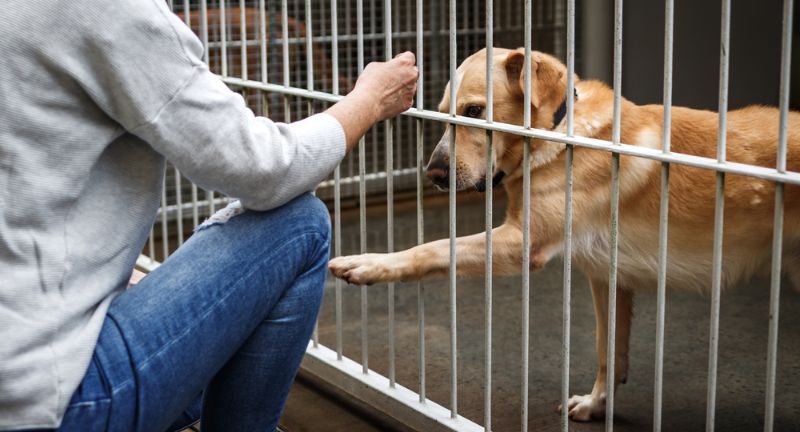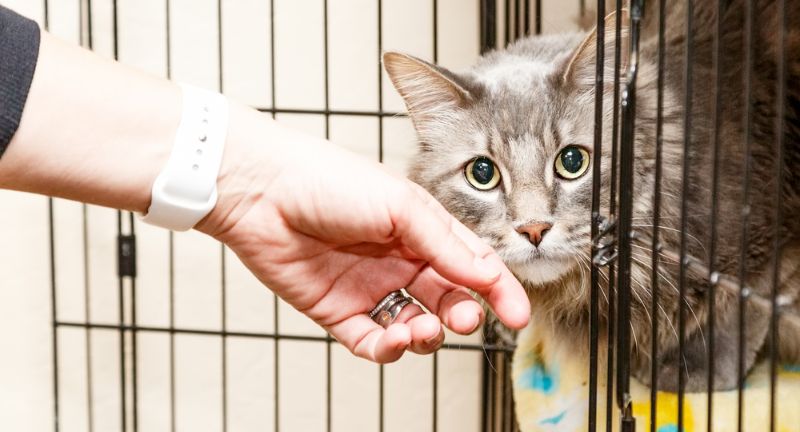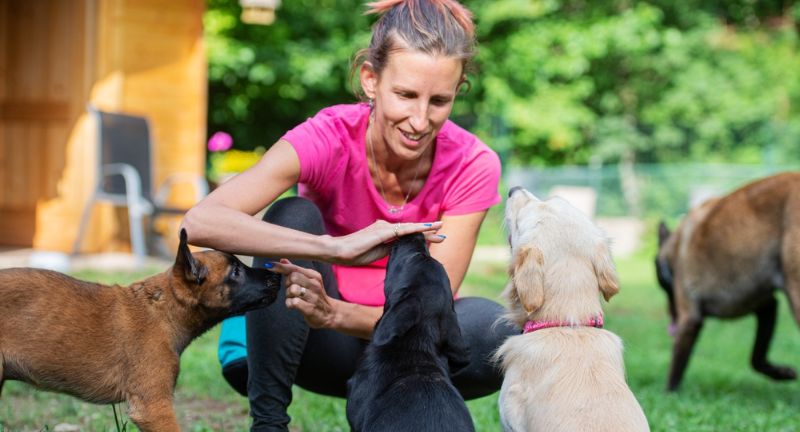CATS
16 Tips For Adopting a Pet From Your Local Animal Shelter
Published
9 months agoon

Shutterstock
Adopting a pet from your local animal shelter is a wonderful way to add a new member to your family. Not only do you provide a loving home for an animal in need, but you also support the efforts of shelters in caring for abandoned or stray animals. This guide offers practical tips to help you prepare for and navigate the adoption process. By following these recommendations, you can ensure a smooth transition for your new pet into your home. Let’s explore the key steps to making your pet adoption a successful and rewarding experience for both you and your new furry friend.
Assess Your Readiness

Shutterstock
Consider if you’re ready for the responsibility of a pet. Ensure you have the time, finances, and commitment to care for an animal for its lifetime. Pets require daily attention, exercise, and medical care. Make sure everyone in your household is on board with the decision to adopt a pet.
Research the Right Pet

Shutterstock
Different animals and breeds have varying needs. Research to find a pet that matches your lifestyle, energy levels, and living situation. Some pets require more space, exercise, or specific diets. Understanding the characteristics of different pets can help you make an informed decision.
Visit the Shelter

Shutterstock
Spend time at the shelter to meet different animals. Observing them in person can help you find the right match. Interacting with the animals allows you to see their behavior and temperament. This visit can help you decide which pet you feel a connection with.
Ask Questions

Shutterstock
Speak with shelter staff about the pet’s history, health, temperament, and any special needs. This information can help you prepare for the transition. Knowing about any past traumas or medical issues is important for proper care. The staff can also provide tips on how to integrate the pet into your home.
Consider Adult Pets

Shutterstock
Puppies and kittens are adorable but consider adopting adult pets, who often have a harder time finding homes. Adult pets may be calmer and better trained. They can offer the same amount of love and companionship as younger animals. Plus, their personalities are usually more developed, so you know what to expect.
Prepare Your Home

Shutterstock
Before bringing your new pet home, make sure you have all necessary supplies. This includes food, bowls, a bed, toys, and any required pet-proofing. Creating a safe and welcoming environment is essential for a smooth transition. Think about areas where your pet can eat, sleep, and play comfortably.
Plan for Adjustment

Shutterstock
Understand that your new pet may need time to adjust to their new environment. Be patient and provide a safe and comfortable space for them to settle in. They may be nervous or shy at first, but with time and care, they will feel more at home. Allow them to explore and get used to their new surroundings at their own pace.
Schedule a Vet Visit

Shutterstock
Arrange for a health check-up with your veterinarian soon after adoption. This ensures your pet is healthy and up-to-date on vaccinations. Your vet can also provide advice on diet, exercise, and any medical concerns. Regular vet visits are crucial for maintaining your pet’s health.
Establish a Routine

Shutterstock
Pets thrive on routine. Establish regular feeding, exercise, and bathroom schedules to help your new pet adapt. Consistency helps reduce stress and anxiety for your pet. Over time, they will learn to expect certain activities and feel more secure.
Invest in Training

Shutterstock
Basic training can help your pet understand what is expected of them. Consider enrolling in obedience classes or working with a professional trainer. Training strengthens the bond between you and your pet. It also ensures they behave well in different situations and environments.
Socialize Your Pet

Shutterstock
Introduce your pet to different environments, people, and other animals gradually. Proper socialization is important for their development and behavior. Positive experiences with new things help them become well-adjusted and confident. Avoid overwhelming your pet with too many new experiences at once.
Be Patient

Shutterstock
Adjusting to a new home can be stressful for a pet. Be patient and understanding as they learn to trust and adapt to their new surroundings. They might display signs of anxiety or nervousness initially. Give them time, and with love and support, they will settle in.
Monitor Behavior

Shutterstock
Keep an eye on your pet’s behavior and health. Look out for any signs of stress, illness, or behavioral issues and address them promptly. Early detection of problems can prevent them from becoming serious. Consult with your vet or a pet behaviorist if you notice anything concerning.
Get Involved in the Community

Shutterstock
Join local pet groups or online forums to connect with other pet owners. They can provide support, advice, and opportunities for socialization. Community involvement helps you and your pet make friends. It’s also a great way to learn about local pet-friendly events and resources.
Educate Yourself

Shutterstock
Continuously educate yourself about your pet’s breed-specific needs, health, and behavior. This knowledge can help you provide better care. Reading books, watching videos, and attending workshops can be beneficial. Staying informed ensures you are equipped to handle any issues that arise.
Commit to Lifelong Care

Shutterstock
Remember that adopting a pet is a lifelong commitment. Be prepared to provide love, care, and support for the entirety of your pet’s life. This includes being there through all stages, from playful youth to senior years. Your pet will rely on you for consistent care and companionship.
Conclusion

Shutterstock
Adopting a pet from your local shelter can be one of the most fulfilling decisions you make. By following the tips outlined in this guide, you are well on your way to providing a safe and loving home for your new companion. Remember, patience and commitment are key as your pet adjusts to their new environment. The joy and unconditional love you will receive in return are immeasurable. Thank you for choosing to adopt and making a difference in the life of an animal in need.
More Amazing Animals+
-


25 Unusual But Undeniably Adorable Baby Animals
-


15 Of The Cutest Cat Breeds
-


20 Subtle Signs Your Cat Secretly Despises You
-


25 Mythical And Misunderstood Animals
-


20 Random Facts About Lions That May Surprise You
-


30 Most Adorable Animals In The World (According To Us)
-


28 Animals That Use Camouflage For Protection
-


30 Most Interesting Mutualistic Relationships In Nature
-


24 Wildlife Conservation Sanctuaries Around The World
-


27 Animals That Live In The Most Extreme Conditions
-


24 Animals That Have The Strangest Defense Mechanisms
-


27 Animals That Look Like They Could Be A Cartoon…
